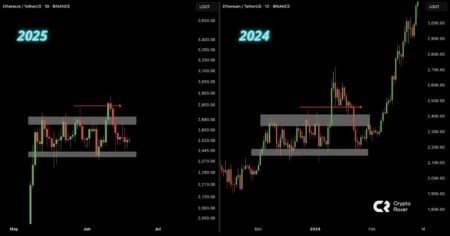Geopolitical tensions are escalating, but Bitcoin hasn’t seen major price action. NoOnes CEO Ray Youssef explains why.
Rising tensions in the Middle East are exposing a flaw in how some traders view Bitcoin (BTC). Instead of acting as a hedge, Bitcoin is behaving more like a tech stock, says Ray Youssef, CEO of NoOnes, a crypto peer-to-peer payments and trading platform.
“Markets usually don’t like surprises — but lately, crypto doesn’t seem to react much. Over the past week, we’ve seen a major hack targeting Iran’s biggest crypto exchange, growing tensions in the Middle East, and even signs of digital warfare. Yet crypto prices have barely moved,” Ray Yossef, NoOnes.
Yossef also highlighted the $100 million breach of Nobitex, Iran’s biggest crypto exchange. The hack, likely performed by Predatory Sparrow, a hacking group with ties to Israel, would have sounded alarm bells earlier.
Escalating tensions are usually positive for hedge assets. However, Bitcoin’s reaction was muted, continuing to trade around $105,000. At the same time, Ethereum (ETH) also traded between $2,120 and $2,330, now for the seventh week in a row. This is despite significant whale inflows, amounting to 871,000 ETH over one week.
Bitcoin fails as a hedge asset for now: Yossef
Bitcoin’s lack of movement, according to Youssef, suggests that its hedge-asset narrative is losing traction in today’s market.
Bitcoin no longer appears to function as a hedge asset; instead, it behaves more like a high-beta tech stock, caught in the macro winds but not really steering its own ship. The link between BTC and the Nasdaq 100 is still strong at 0.68,” Ray Yossef, NoOnes.
Still, Youssef notes that geopolitical risk is driving a shift within the broader crypto landscape. Bitcoin dominance is approaching 66%, as traders retreat from riskier altcoins. If global tensions continue to mount, this rotation into BTC could accelerate, especially if capital controls, sanctions, and infrastructure disruptions enter the mix.
Read the full article here










